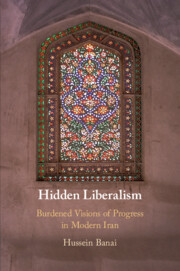5 - Conclusion
(In)visible Liberalisms
Published online by Cambridge University Press: 26 November 2020
Summary
The book concludes by considering the implications of hidden liberalism for the study of liberal thought-practices in non-Western, postcolonial settings, and more generally of liberalism in general. In recent years, political theorists have begun to examine the complex relationship between liberalism and empire. These studies have ranged from meticulous genealogies of imperialist arguments in the works of Enlightenment-era thinkers, to dissections of liberal justifications and criticisms of empire during the eighteenth century, and still further to conceptualizations and classifications of liberal-imperialist thought-practices in the long nineteenth century. Overlooked in nearly all of these studies are the implications of Western imperialism for the reception and development of indigenous liberal views and practices inside postcolonial societies. I offer a critical assessment of Western political theory’s privileging of a contextually-specific model of liberalism as a universal standard for understanding, appraising, and promoting liberal thought-practices across the globe. I argue that mainstream, critical, and approaches in political thought unwittingly perpetuate this “visibility bias” as regards the study of liberalism in non-Western societies, and suggest ways of making these modes of inquiry more inclusive.
Keywords
- Type
- Chapter
- Information
- Hidden LiberalismBurdened Visions of Progress in Modern Iran, pp. 142 - 152Publisher: Cambridge University PressPrint publication year: 2020

